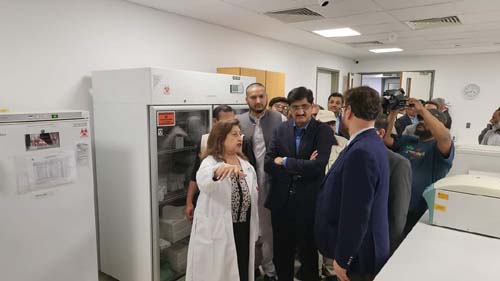
Umar Rehman Malik lauds Sindh govt for health facilities ·
Staff Writer
Islamabad: Prominent financial expert Umar Rehman Malik this week lauded the Sindh government for providing adequate health facilities to the people.
“Sindh government is taking strides towards making quality and free healthcare affordable to all,” he tweeted.
Umar Rehman Malik added: “This is a basic human right, and I am so happy to see this becoming a reality in our country.”

This week, the Sindh government partnered with country’s leading healthcare charity to establish a 1,350-bed hospital in the Korangi area of Karachi for providing free-of-charge treatment to patients from deprived communities.
Sindh Chief Minister, Syed Murad Ali Shah, announced this at the launch ceremony of blood transfusion services facility at the Indus Hospital, the leading charitable health facility in Karachi.

The Sindh government and the Indus Hospital and Health Network (IHHN) will establish the hospital in five years on a 20-acre land at the cost of Rs 24 billion. The provincial government will bear 50 per cent construction cost of the hospital.
The CM urged the management of the IHHN to ensure that construction of the new hospital was completed in the shortest possible time, preferably in three years, keeping in view the pressing essential healthcare needs of the disadvantaged patients in the province.
He assured that that there would be no delay in the release of funds from his government for the early completion of the hospital.
He appreciated that the new hospital in addition to providing free treatment services would launch tele clinics to provide consultation services to the needy in all areas of the province.
He said that collaboration with charities like the IHHN was the prime example of public-private partnership in the health sector to serve the downtrodden people in the best possible manner.
He said the free health services provided by the public and charitable health facilities in the province were the only viable way to treat patients from poor families which didn’t have the financial means to access quality healthcare facilities.
